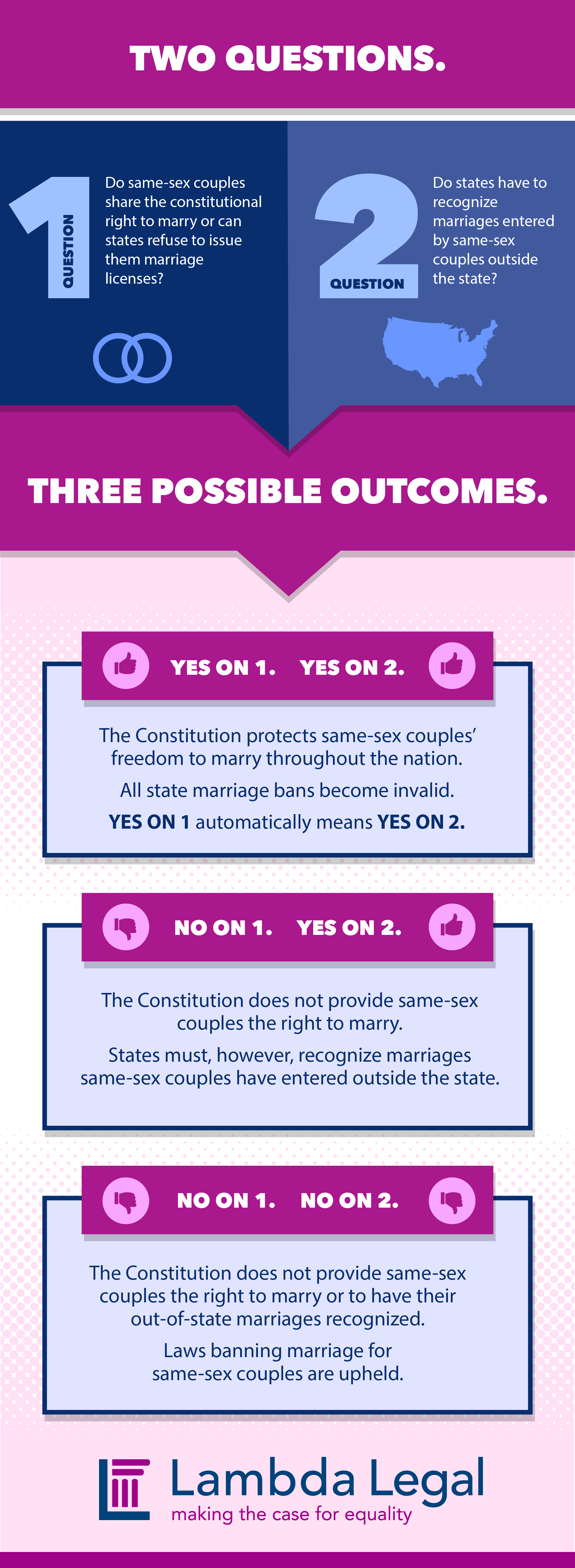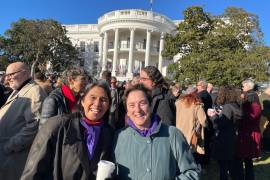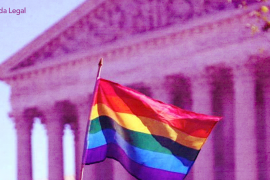
The Three Possible Outcomes in the Marriage Cases at the Supreme Court
Blog Search
On April 28, the Supreme Court heard oral arguments in six cases from four states concerning marriage for same-sex couples. The Court asked counsel to address two questions in their presentation:
Question 1: Must states allow same-sex couples to marry under the United States Constitution? Question 2: Must states recognize the legal marriages entered by same-sex couples in other jurisdictions?
There are three possible outcomes.
1. Total Win, Huge Celebration: A broad ruling bringing marriage for same-sex couples to all 50 states, Washington D.C., Puerto Rico and U.S. territories.
In this scenario, our community would definitely have a reason to celebrate! A win for same-sex couples and their children will breathe new life into our country’s promise of liberty and equality,  and affirm the common humanity of all of us, regardless of our gender or sexual orientation.
and affirm the common humanity of all of us, regardless of our gender or sexual orientation.
However, we will still have work to do. Some public officials have sworn to resist any Supreme Court ruling that holds that same-sex couples and their children are equally deserving of respect. Some state legislatures also have passed or are actively considering legislation designed to thwart equality. Indeed, over 100 bills in state legislatures across the country were introduced in state legislatures this past year to permit businesses, employers, social service agencies and others to refuse service, benefits or protections if they can describe their refusal in religious terms.
Additionally, more than half the states in the country lack any explicit protections from discrimination based on sexual orientation or gender identity. Other pressing work includes advocating on behalf of transgender people and people with HIV, who still face crushing discrimination in many aspects of their lives. While we celebrate a win for marriage at the Supreme Court, we must make sure to remember how much work is left to be done.
2. Total Loss, Total Mess: A ruling for the states, which allows states to keep marriage bans in place.
The effect of a ruling that upholds bans on marriage for same-sex couples in the four states in the U.S. Court of Appeals for the Sixth Circuit (from which the cases that were heard by the Supreme Court in April arose) would usher in a confusing and harmful legal landscape for lesbian and gay couples and their children.
We will keep fighting for the freedom to marry in all states, in state legislatures and at the ballot. We also will fight to make clear that the marriages that have already taken place as a result of federal court rulings prior to the Supreme Court’s decision remain valid.
Of course, the validity of marriages entered into by same-sex couples in jurisdictions that passed marriage equality through legislation or referendum or through state court rulings would be unaffected by the Supreme Court’s decision.
3. Partial Loss, Still a Mess: A narrow ruling allowing states to deny marriage licenses to same-sex couples, but requiring all states to recognize marriages legally entered into by same-sex couples in other jurisdictions.
In this situation, the Supreme Court would create two tiers of same-sex couples: those who can travel out of state to get married, and those who cannot. What if someone is in the final stages of a terminal illness and can’t physically make the trip to a state that allows him or her to marry? What about the families struggling to meet day-to-day needs who can’t afford to take time off from work to travel to another state to marry? Additionally, this type of ruling would invite discrimination against same-sex couples and their children and stigmatize them by sending the message that a state can treat them as second-class citizens.




